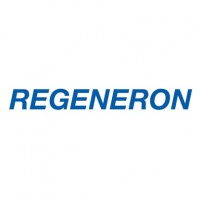Regeneron (REGN) Announces NEJM Publishes Positive Phase 3 Evinacumab Results in Patients with Severe Inherited Form of High Cholesterol

Regeneron Pharmaceuticals, Inc. (NASDAQ: REGN) today announced that the New England Journal of Medicine (NEJM) published positive results from the Phase 3 trial of evinacumab in 65 patients with homozygous familial hypercholesterolemia (HoFH). Evinacumab is an investigational medicine that binds to and blocks the function of angiopoietin-like 3 (ANGPTL3), and is the first medicine of its kind to show efficacy in patients with HoFH – including patients with little to no low-density lipoprotein (LDL) receptor function.
Patients with HoFH have severely elevated levels of bad cholesterol (low-density lipoprotein cholesterol, or LDL-C), which increases their risk for premature atherosclerotic disease and cardiac events as early as their teenage years. Treatment guidelines recommend early and intensive LDL-C lowering, but patients with HoFH are less responsive (or unresponsive) to standard lipid-lowering therapies, including statins and PCSK9 (proprotein convertase subtilisin/kexin type 9) inhibitors.
As initially announced in a topline press release, the trial met its primary endpoint, showing that patients who added evinacumab to other lipid-lowering therapies (n=43) reduced their LDL-C from baseline by 49% compared to lipid-lowering therapies alone (placebo, n=22) at week 24 (47% reduction evinacumab, 2% increase placebo, p<0.0001). At the same time point, evinacumab-treated patients also decreased LDL-C from baseline by 132 mg/dL compared to placebo (135 mg/dL reduction evinacumab, 3 mg/dL reduction placebo, p<0.0001). As discussed in the NEJM publication, genetic loss of ANGPTL3 has been associated with additional lipid-lowering effects, including lowered triglycerides, apolipoprotein B (ApoB), HDL and non-HDL cholesterol, and total cholesterol. Evinacumab treatment mirrored these lipid-lowering effects.
"The vast majority of my patients with HoFH never reach their target LDL-C despite taking multiple lipid-lowering therapies, and they remain at increased risk of premature heart disease because of their persistently high LDL-C levels," said Professor Derick J. Raal, MMED, Ph.D., principal investigator and Professor & Head, Division of Endocrinology & Metabolism at the University of the Witwatersrand, South Africa. "If approved, evinacumab will provide a major step forward for the treatment of patients with HoFH who have significant unmet needs."
Researchers also assessed in a post hoc analysis the effect of evinacumab in patients with nearly non-existent (<2%) LDL-receptor activity, whose mean baseline LDL-C levels were 258 mg/dL (n=10). Among these patients, evinacumab reduced LDL-C by 72% from baseline compared to placebo (54% reduction evinacumab, 19% increase placebo, nominal p=0.005).
During the double-blind treatment period, 66% of evinacumab patients and 81% of placebo patients experienced at least one adverse event (AE). AEs that occurred in at least 5% of patients and more commonly with evinacumab were influenza-like illness (11% evinacumab, 0% placebo) and rhinorrhea (7% evinacumab, 0% placebo). There were no deaths, major adverse cardiovascular events or discontinuations due to AEs.
"Today's publication further demonstrates how evinacumab, through its novel mechanism of action, was able to reduce LDL-C levels in patients with all forms of HoFH, even those with nearly no LDL-receptor activity," said George D. Yancopoulos, M.D., Ph.D., Co-founder, President and Chief Scientific Officer at Regeneron. "This validates our genetic-based approach, where Regeneron ANGPTL3 genetic research directly led to evinacumab, which we hope can become the standard of care in the treatment of HoFH."
Previous research published in NEJM in 2017 by the Regeneron Genetics Center found that people with loss-of-function mutations in their ANGPTL3 gene have significantly lower levels of key blood lipids, including LDL-C. By blocking the ANGPTL3 protein, evinacumab was designed to replicate this loss-of-function mutation effect to lower LDL-C in people with HoFH.
In the U.S., the Biologics License Application (BLA) for evinacumab is currently under Priority Review, with a target action date of February 11, 2021. In 2017, the U.S. Food and Drug Administration (FDA) granted Breakthrough Therapy designation to evinacumab for the treatment of hypercholesterolemia in patients with HoFH. Other regulatory submissions are ongoing, including in the European Union, where the European Medicines Agency's Committee for Medicinal Products for Human Use (CHMP) recommended an accelerated assessment for evinacumab based on the high unmet medical need and therapeutic innovation demonstrated by the product. The safety and efficacy of evinacumab have not been fully evaluated by any regulatory authority.
About evinacumab and the ELIPSE HoFH Trial Evinacumab is an investigational fully-human monoclonal antibody that binds to and blocks the function of ANGPTL3 and is currently being studied in patients with HoFH (ongoing Phase 3 extension trial), refractory hypercholesterolemia (Phase 2) and severe hypertriglyceridemia (Phase 2).
Regeneron invented evinacumab using the company's VelocImmune® technology, a proprietary genetically-engineered mouse platform endowed with a genetically-humanized immune system to produce optimized fully-human monoclonal antibodies. VelocImmune technology has been used to create multiple FDA-approved antibodies including Praluent® (alirocumab), Dupixent® (dupilumab), Libtayo® (cemiplimab-rwlc) and Kevzara® (sarilumab). Regeneron previously used these technologies to rapidly develop a treatment for Ebola virus infection, which is currently under review by the FDA, and is now being used in efforts to create prophylactic and treatment medicines for COVID-19.
ELIPSE (Evinacumab LIPid StudiEs) HoFH was a multi-national Phase 3 randomized, double-blind, placebo-controlled, parallel-group trial evaluating the efficacy and safety of evinacumab 15 mg/kg administered intravenously every four weeks in 65 patients aged 12 years or older with HoFH (43 evinacumab, 22 placebo). The primary endpoint was reduction of LDL-C from baseline with evinacumab compared to placebo at 24 weeks.
